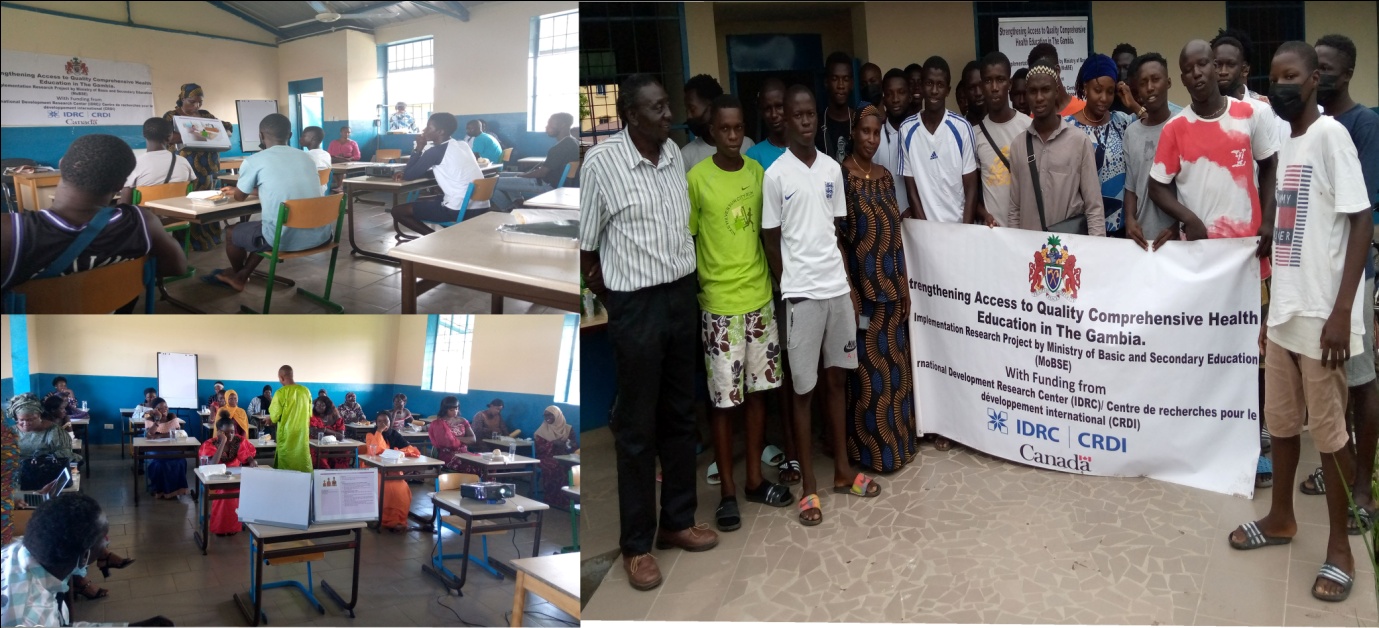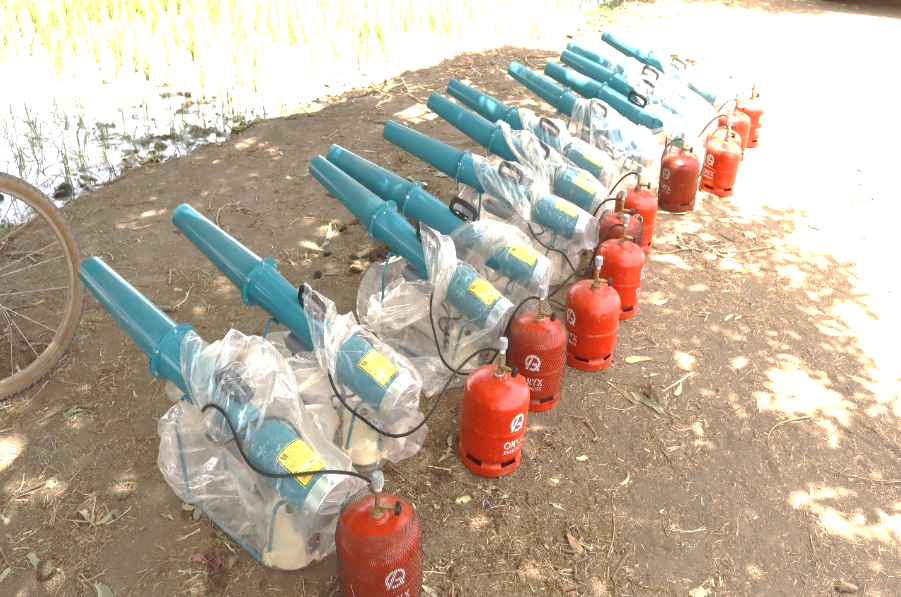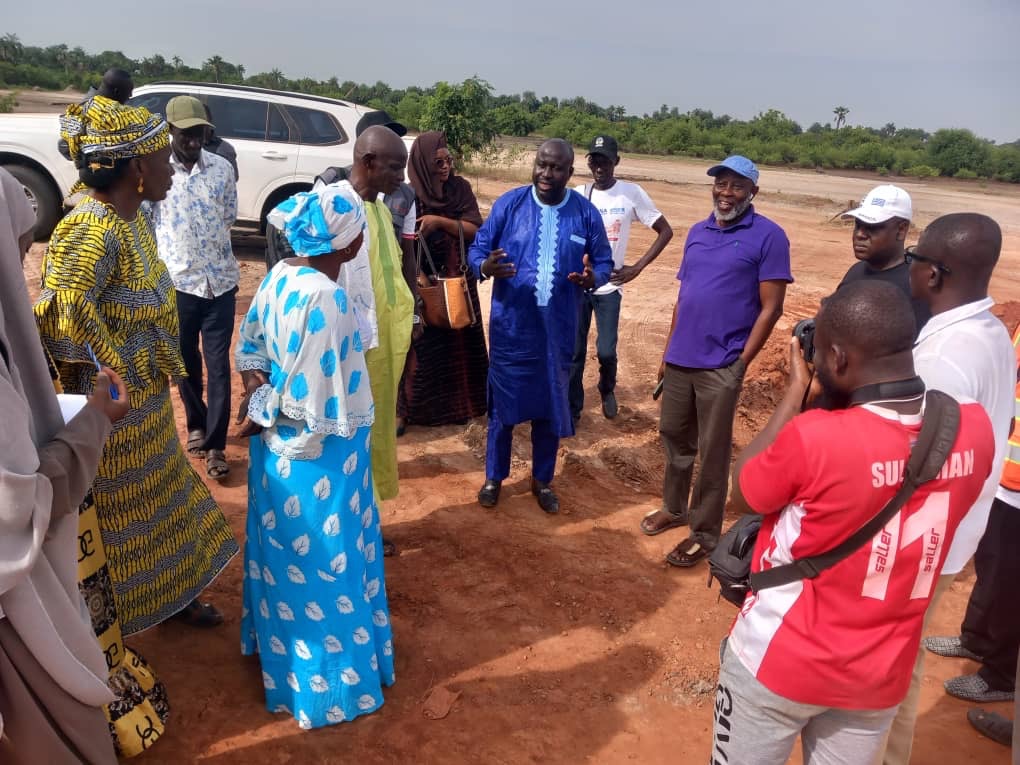By Yunus S Saliu
Curriculum Research, Evolution and Development Directorate (CREDD) of Ministry of Basic and Secondary Education (MoBSE), The Gambia Thursday, kicked-start three-day training on Strengthening Access to Quality Comprehensive Health Education for out of school adolescents in Banjul City Council.
The interactive training held at the Crab Island Technical and Vocational Education Training Centre in Banjul brought together adolescents – male and females on different days and as well religious leaders, ward councilors, community leaders; opinion leaders among others.
The Comprehensive Health Education (CHE) training which covered different areas such as sexual and reproductive health; the components; teenagers/adolescence; menstrual cycle; STIs; genital ulcers; HIV/AIDS; FGM; prevention messages with lots of other topics where meant to update and shape the social behavior, perspective and communication of the society towards reproductive health.
Abdou Kharim from Reproductive Neonatal, Maternal, Child and Adolescent Health (RNMCAH) unit and Fatou Drammeh of Social Behaviour and Communication Change (SBCC) unit made presentations on CSE issues – menstruation, unwanted pregnancy, unsafe abortion, STD; contraceptives among others.
The duo as well dwelled on stimulation exercise; all presentations were done with different illustrations for better understanding as questions and answers followed each presentation, while participants expressed satisfaction about the presentations and as well the presenters.
Phebian Ina Grant-Sagnia, principal investigator of the project for Strengthening Access to Quality Comprehensive Health Education for in-and-out of School Adolescents in Region I, The Gambia also a Principal Health Researcher Ministry of Health delivered a comprehensive presentation on sexual and reproductive health at the three days training.
Reproductive Health, the Principal Investigator said according to the consensus definition agreed on at the ICPD in 1994, it “is a state of complete physical, mental and social well-being and not merely the absence of disease or infirmity, in all matters relating to the reproductive system and to its functions and processes.
She noted that the definition was made within the context of the definition of health in the constitution of the World Health Organization (WHO) as “a state of complete physical, mental and social well-being and not merely the absence of disease or infirmity.”
She pointed out the key correlates of reproductive health which include sexuality; sexual health and reproductive rights and social justice.
Dilating on this, she said without sexuality, there can be no reproduction or reproductive health, saying the ICPD in Cairo also expanded the definition of reproductive health to include “a satisfying and safe sex life.” More so, she added, the ICPD Programme of Action stated that “reproductive health implies that people are able to have a satisfying and safe sex life and that they have the capacity to reproduce and the freedom to decide if, when and how often to do so.”
However, Madam Grant-Sagnia reminded them about Sexual Health, as is part of reproductive health and includes healthy sexual development; equitable and responsible relationships and sexual fulfilment; and freedom from illness, disease, disability, violence, and other harmful practices related to sexuality. While the components of reproductive health involved fertility regulation; infertility: prevention and treatment; safe motherhood; infant and child survival, growth and development; sexually transmitted disease including HIV/AIDS; unsafe abortion: prevention and management and reproductive system cancers.
The Principal Investigator explained further that key considerations in reproductive health are Gender equity; Sexual behaviour; Adolescent reproductive health and sexuality; Harmful traditional practices and violence against women; Reproductive tract malignancies and Reproductive health of older women and men.
“The practical roles school staff can play in addressing adolescent reproductive health issues such as teenage pregnancy, STDs, and HIV/AIDS; requires particular attention to identify and assess adolescents most at risk for pregnancy, STDs, and HIV/AIDS, and the regulations that address protection of students’ privacy in this area. This because since schools have uniquely high access to youth, they are extremely well-suited places in which to prevent and intervene early in the course of adolescent reproductive health problems,” she stated.
The comprehensive health education (CHE) under the project – Strengthening Access to Quality Comprehensive Health Education in The Gambia is an implementation research project done by the Ministry of Basic and Secondary Education (MoBSE) with funding from International Development Research Center (IDRC). And it is meant to enlighten and educate in and out-of-school students on adolescent sexual and reproductive health (ASRH).





